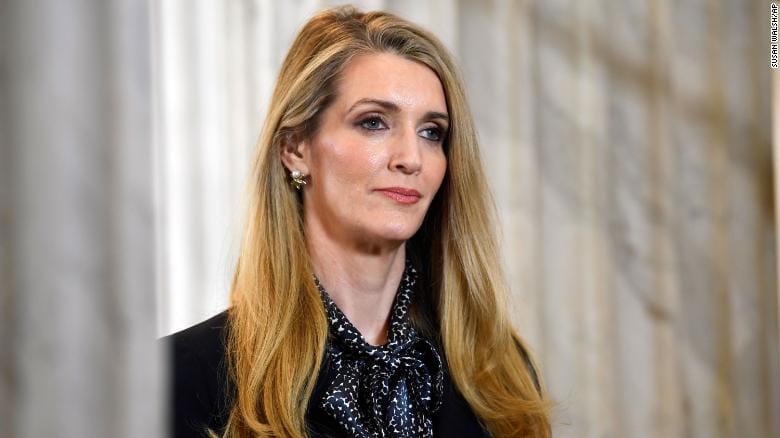In a notable address, U.S. Senator JD Vance has drawn attention to the untapped potential of Greenland, suggesting that there are significant opportunities for collaboration and investment in the region. Vance’s comments reflect a broader interest in the Arctic, where geopolitical tensions and climate change are reshaping the landscape of international relations and economic prospects.
Greenland, an autonomous territory of Denmark, has long been recognized for its vast natural resources, including minerals, oil, and gas. As global demand for these resources continues to rise, the strategic importance of Greenland has become increasingly apparent. Vance’s assertion that “there’s a deal to be made in Greenland” underscores the urgency of engaging with the territory’s government to explore mutually beneficial partnerships.
The senator’s remarks come at a time when the Arctic region is experiencing heightened interest from various nations, particularly as climate change opens up new shipping routes and access to previously unreachable resources. The melting ice caps are not only altering the physical landscape but also creating new opportunities for economic development. Vance’s focus on Greenland aligns with a growing recognition among U.S. policymakers of the need to assert American interests in the Arctic.
Vance emphasized the importance of building relationships with Greenland’s leadership, noting that collaboration could lead to advancements in infrastructure, technology, and resource management. He pointed out that the U.S. has a vested interest in ensuring that Greenland’s resources are developed responsibly and sustainably, benefiting both the local population and American businesses.
The senator’s comments also highlight the potential for increased investment in Greenland’s infrastructure, which has been a longstanding challenge for the territory. Improved transportation and communication networks could facilitate the extraction and export of natural resources, while also enhancing the quality of life for Greenland’s residents. Vance’s vision includes not only economic growth but also the empowerment of local communities through job creation and skill development.
Moreover, Vance’s focus on Greenland is part of a larger narrative regarding U.S. foreign policy in the Arctic. As nations like Russia and China increase their presence in the region, the U.S. faces the challenge of maintaining its influence and ensuring that its interests are represented. By fostering partnerships with Greenland, the U.S. can strengthen its position in the Arctic and counterbalance the influence of other nations.
The senator’s remarks have sparked discussions among policymakers, business leaders, and environmentalists about the implications of increased U.S. engagement in Greenland. While there is enthusiasm for the potential economic benefits, there are also concerns about the environmental impact of resource extraction and the need to respect the rights and wishes of the indigenous population.
As the conversation around Greenland continues to evolve, it is clear that the territory holds significant promise for economic development and strategic partnerships. Vance’s call for a deal in Greenland reflects a growing recognition of the importance of the Arctic in global affairs and the need for the U.S. to take an active role in shaping the future of the region.
In conclusion, JD Vance’s assertion that there is a deal to be made in Greenland highlights the strategic opportunities that lie within this unique territory. As the U.S. navigates the complexities of Arctic geopolitics, engaging with Greenland’s government and exploring avenues for collaboration will be essential. The potential for economic growth, infrastructure development, and responsible resource management presents a compelling case for increased U.S. involvement in Greenland, making it a focal point for future discussions on Arctic policy.



